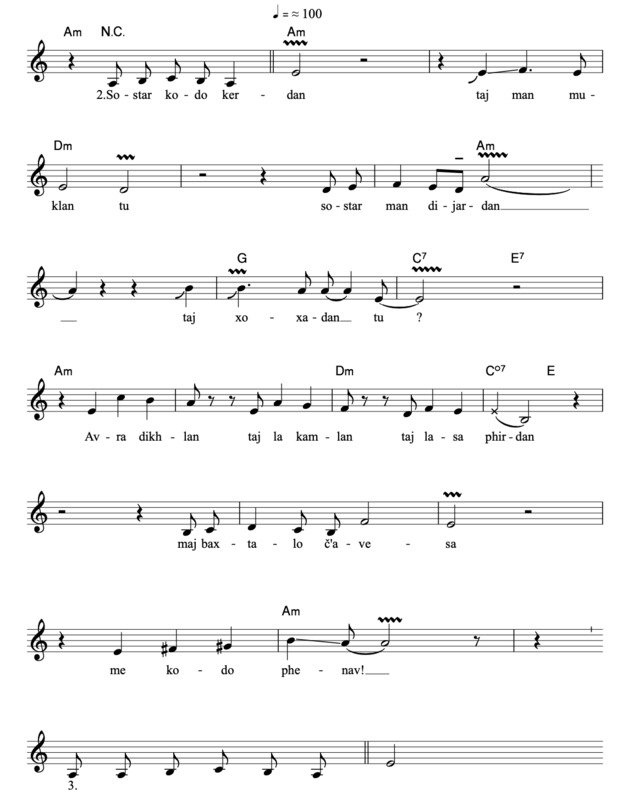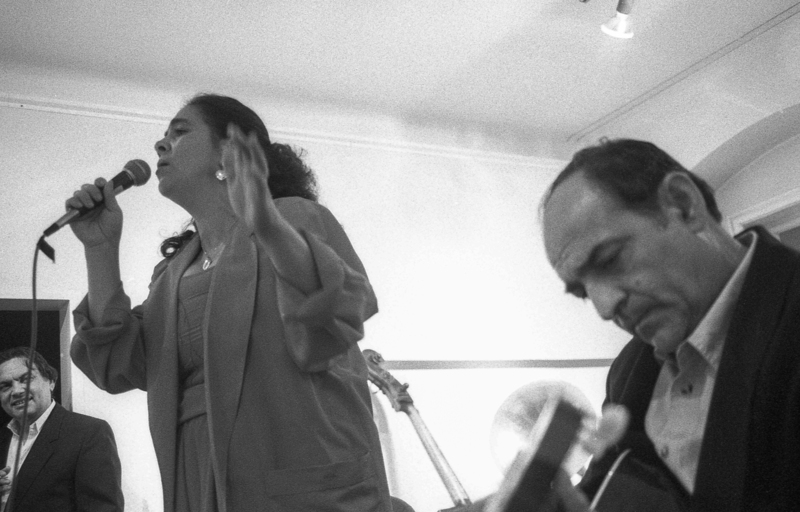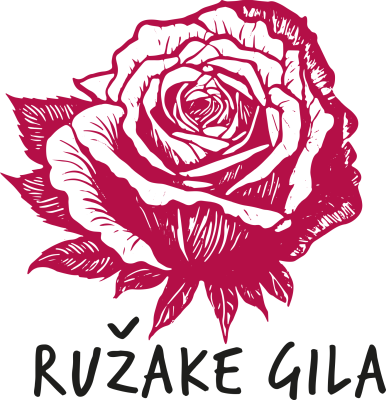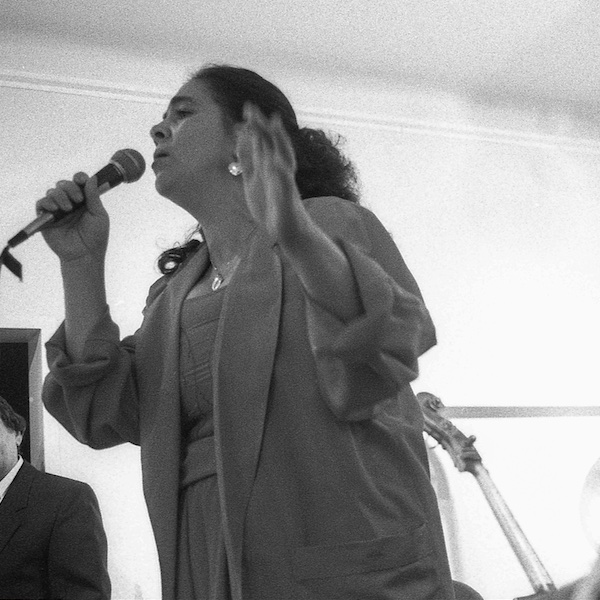
Ando tunjariko
Content
Recording
In this song, an abandoned woman laments her suffering. She says, her lover will never be as happy with someone else as he is with her, because only she loves him with all her heart. The recording was made in 1991 during a concert at the Amerlinghaus.
musical transcription based on Romane gila. Lieder und Tänze der Roma in Österreich.
Ando tunjariko belongs to the neve gila, the new songs. Ethnomusicologist Ursula Hemetek comments on the song as follows:
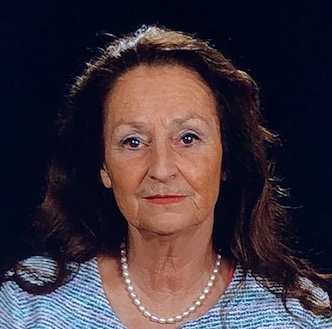
„This song is one of those that was created spontaneously by Ruža, her son, Johnny, and her husband in Sweden. Some parts may have been created from memory and in reference to songs heard in the past. The motif of the abandoned lover appears in many songs. Musically, it is a more recent song form. The agreement between the singer and the guitarist only becomes somewhat tangible in the second verse noted here.“
Quelle:
- Hemetek, Ursula et al. Romane gila. Lieder und Tänze der Roma in Österreich. (Österreichische Dialektautoren, Hrsg.). Wien: Institut für Volkmusikforschung an der Hochschule für Musik und darstellende Kunst, 1992.
Commentary
(GERMAN ONLY) In a field research interview, Manuela Nikolić, the daughter of Ruža Nikolić-Lakatos and Mišo Nikolić, comments on the content of Ando tunjariko. She emphasises that it is a lament.
Lyrics
Stanza 1
| Ando tunjariko | In the dark |
| korkoro phirav | I walk alone |
| man korkora pušav | and ask myself |
| sostar muklan ma? | why you left me. |
| Karing te žav, | Where should I go |
| tut te rodav, | to look for you |
| tut me te dikhav, | to see you, |
| kenjepšigo po ilo | so that my heart |
| mange te rodav! | becomes lighter? |
Stanza 2
| Sostar kodo kerdan | Why did you do this |
| taj man muklan tu, | and left me |
| sostar man dijardan | why did you make me believe, |
| taj xoxodan tu? | lie to me? |
| Avra dikhian | You saw another one |
| taj la kamlan | and loved her |
| taj lasa phirdan, | and went with her. |
| maj baxtalo č'avesa, | You won’t be any happier, |
| me kodo phenav! | I say. |
Stanza 3
| Ke kodi bax so rodan, | Because the happiness you were looking for |
| soha č' avela, | will never come true, |
| kej voj tut či kamlas | because she didn’t love you, |
| taj či kamela, | and will not love you either, |
| kade sar me | just as I love you |
| tut but kamav | and will not forget you. |
| taj tut či bristav, | That you come back to me, |
| mande palpale t'aves | I ask God. |
| e Devlas mangavi |
Photo
© Gerhard Maurer (1991)
Zitierempfehlung anzeigen
Bitte zitieren Sie diese Seite wie folgt:
Music and Minorities Research Center, "Ando tunjariko", Ružake gila, zuletzt besucht am Loading date..., doi.org/10.21939/pvy3-tw44

